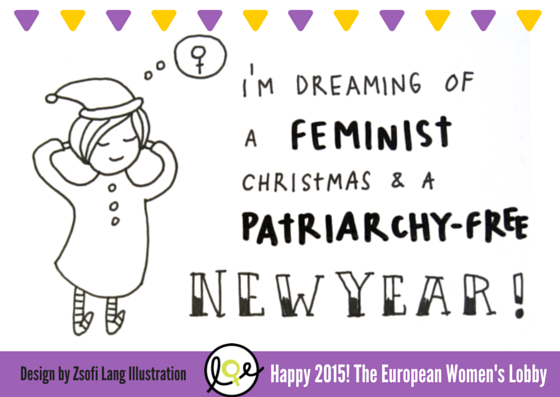[Brussels, 19 September 2012] The EWL has written to the European Commission and Member States in response to a letter signed by 9 countries against a proposed EU Directive to increase the number of women on boards across Europe. Although well below our expectations, the EWL is giving its full backing to Commissioner Reding’s proposal, and calling on all parties to do the same. You can find the full letter below.
Dear EU leaders,
We, members of the European Women’s Lobby and representing women’s associations from across the European Union, are very concerned at the news that a number of EU Member States are seeking to block the passage of promised legislation to ensure a more equal representation of women and men on company boards in the EU.
At a time of economic turbulence and while EU citizens are expecting positive signals from EU leaders in relation to promoting a more equal and social Europe, we ask EU Member States and other European level decision-makers who oppose the proposal to review their position and thank Member States, the European Parliament and EU leaders supporting the proposal for continuing to stand behind it.
Women’s gross under-representation in decision-making in the private sector is undemocratic, inefficient and contributes to broader inequality between women and men.
As you are aware, women are severely under-represented in decision-making in the private sector across the EU, and progress in rectifying this imbalance is painfully slow. There is evidence that in a number of EU countries, the trend is even negative. While women are half of the overall population and 60% of university graduates, they represent on average only 14% of board members of publicly-listed companies. This effective exclusion of women from decision-making also impacts upon the broader question of equality in employment: the relegation of women to lower-level positions is a major cause of the persistent gender pay gap in Europe, which currently stands at 16,4% on average.
The debate over economic governance has gained force with the crisis, while an increasingly large body of research has demonstrated how gender equality and diversity on boards of administration is a factor in efficiency. In recent years, Norway, France, Belgium, the Netherlands, Italy and Spain have all adopted progressive legislation to improve the representation of women on boards of administration, with positive results. These successful examples should be a model for the European continent as a whole.
At a time when the economic and social crisis is hitting them particularly hard, women across Europe are calling for action and support more concerted provisions in support of a more equal European Union.
Alternatives to regulation have failed. The proposal for regulation to ensure access on equal merit should be supported.
Repeated national, European and international commitments to equality between women and men, including in decision-making, have failed to produce results. Appeals for self-regulation have failed to produce results. Women cannot be asked to accept this exclusion any longer. EU Member States lagging behind should take example on the six European countries which have already adopted legislation in this area.
While the EWL is supporting a strong approach in relation to the scope of possible legislation and sanction, we fully support the proposal of Vice-President Reding as an important progress.
The draft Directive being prepared by European Commission Vice-President Reding is designed to reinforce meritocracy in access to board positions. Setting a target of 40% for the least-represented sex by 2020, companies are required to give preference to candidates from the under-represented sex on the basis of equal qualification. Such a clause simply forces companies to give equal consideration to women candidates on the basis of merit.
In addition, the very limited scope of the text should reassure any Member State wary of excessive EU interference: the Directive would apply only to publicly-listed companies with more than 250 employees and an annual turnover exceeding 50 million EUR. It also concerns only non-executive positions on boards of administration, thus excluding the most influential posts. Member States are furthermore given considerable discretion in selecting the sanctions for non-compliance.
Given previous legal commitments, the continuous political expressions of commitment to democracy, justice and equality between women and men of all EU countries, and the more-than-reasonable nature of the proposed legislation, it is shocking that a number of Member States are taking position against Ms. Reding’s initiative, namely Bulgaria, the Czech Republic, Denmark, Hungary, Lithuania, Malta, Netherlands, Sweden, Slovenia and the UK.
Who’s afraid of equality?
It is time for the EU and its Member States to live up to their commitments, to go beyond the talk and walk the walk. It requires effort to break with the status quo and move towards more equal societies, but history has demonstrated the wide-ranging benefits of such a move. Now, as the EU struggles to ensure the competitiveness and sustainability of its economy, it is all the more important to put aside anachronistic conceptions of gender roles and allow for true equality between women and men. We look forward to seeing you rise to the occasion.
The European Women’s Lobby


